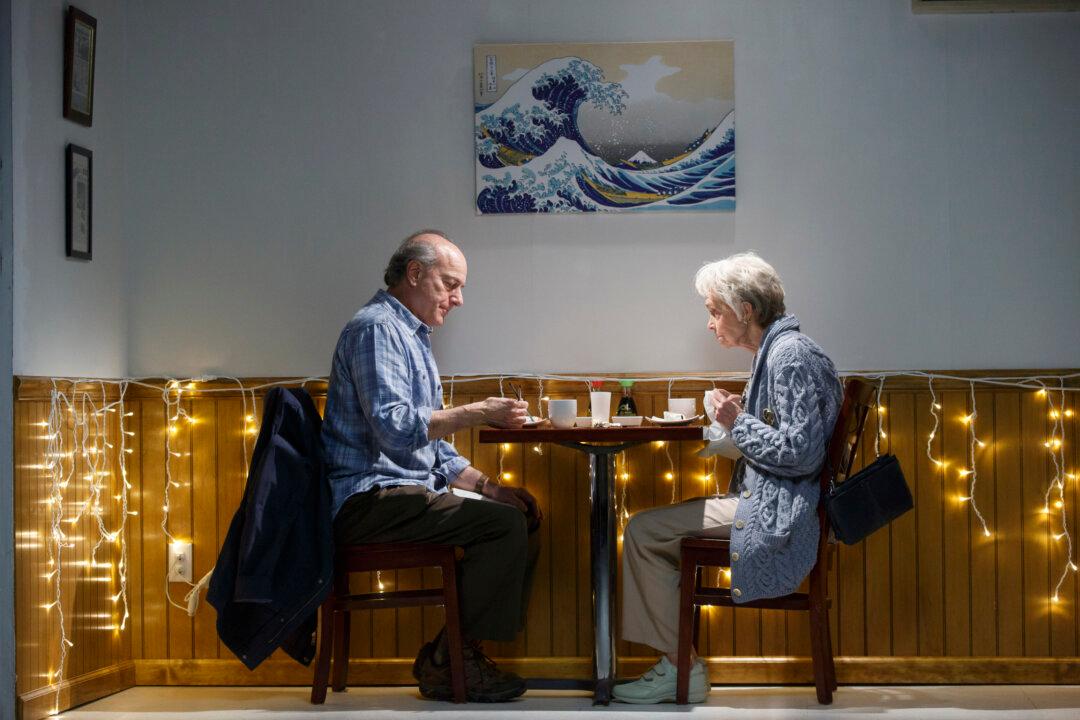NEW YORK—Max Posner’s take on a mother-son relationship is rife with subtext, adding dimension and color to every moment. And director David Cromer’s contribution to “The Treasurer” is right on the money.
On the surface, the son (Peter Friedman, in a quietly gut-wrenching performance) has been appointed by his two younger brothers to take charge of their mother’s finances. Ida (impeccably portrayed by Deanna Dunagan) just can’t stop spending the family’s money.





